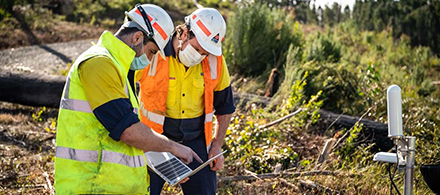For a decade, the Victorian government-owned forestry controller VicForests has been a tinderbox of incompetence looking for a match. Gifted a near monopoly on Victoria’s forestry, it is my view that the organisation has failed to manage our timber industry.
Too many forestry contractors working for VicForests broke the rules. From reports of logging outside allocations to logging old-growth forests, this has gifted activists’ solid legal pathways to halt harvesting and in turn, practically bankrupted the state-owned organisation.
VicForests is yet another Victorian example of bureaucracy gone wrong. When they broke the rules, they lobbied the government to change them. When caught by activists, they employed private investigators to, according to the ABC, spy on them.
When challenged in court they spent millions of taxpayer funds defending the indefensible.
VicForests had so much rope they managed to hang themselves along with the state’s timber industry. One might ask where the state government was in all of this, considering the body charged with the industry oversight the, Office of Conservation Regulator, did not do enough to hold VicForests accountable… A cynic might believe the Green-Labor government was only too happy to watch the forestry industry vanish.
I think VicForests should be shut down, but it shouldn’t take the industry with it. The state government, under new leadership, must go back to the drawing board on forestry. Timber is essential for the construction industry, our country’s manufacturing sovereignty and has the modern virtue of sequestrating massive volumes of carbon.
The framework for successful forestry management already exists within the non-government Forestry Stewardship Council. The principals of the council are scientifically based, independently audited, and already cover 200 million hectares of forest globally.
The state government, alongside the FSC, should set an allocation each year and let logging contractors bid for a license to harvest. Licensees would need to demonstrate ongoing compliance, with failure to do so resulting in suspension.
The state government can provide a framework for the industry, issue and collect license fees, but should not have direct involvement in the business of forestry.
If the result of accountability is reduced timber yield at a higher cost, let the market decide what it’s willing to pay. As it stands for manufacturers the price point of Victorian Ash is at least 30% less than the next comparable hardwood species. In practical terms that’s hundreds of millions in margin across the current allocation. Money which could go toward better forestry management, local jobs and saving the taxpayer.
Marcus Bastiaan is a director at Specialty Doors






